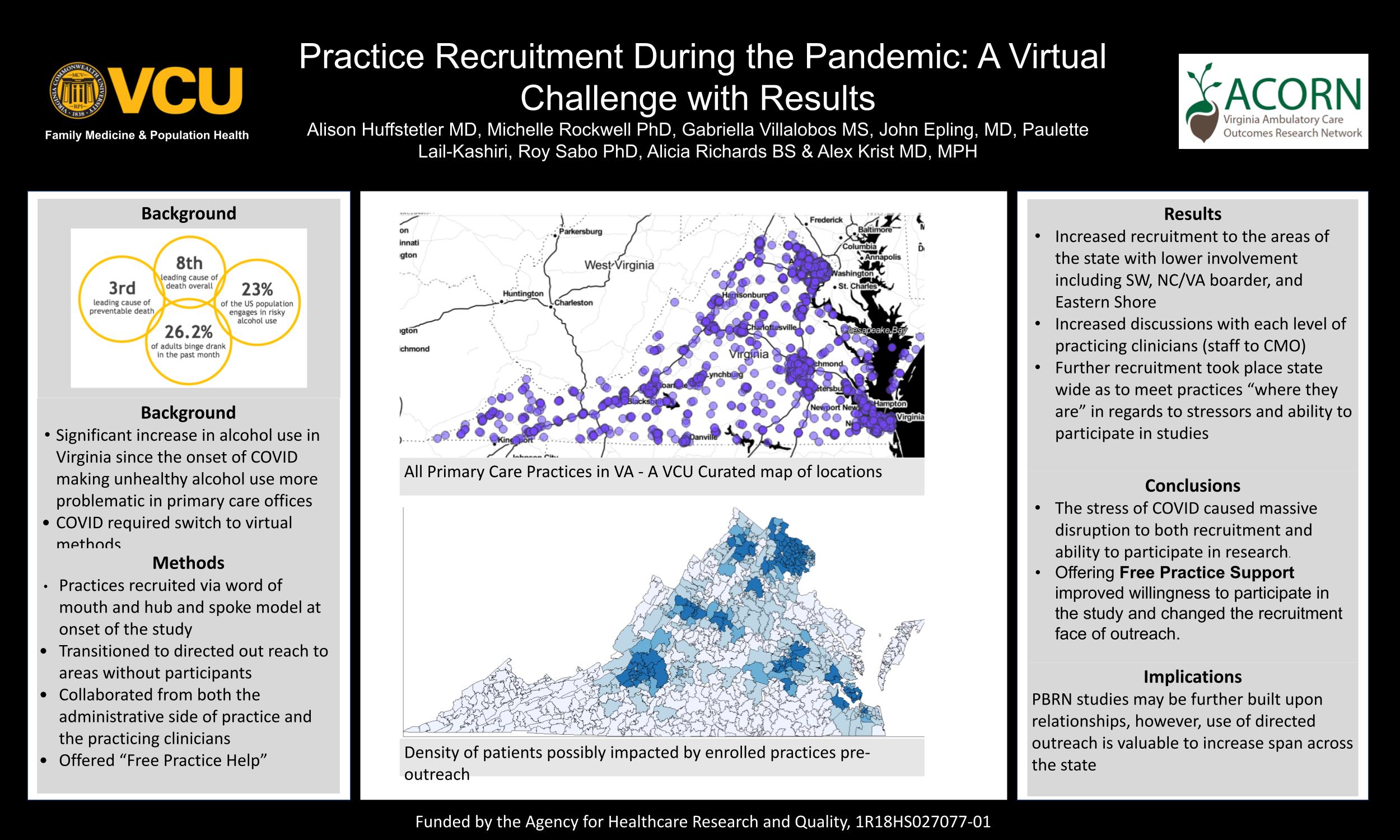PRP037: Facilitators and Barriers to Recruitment for a Practice Facilitation-Guided Intervention to Reduce Unhealthy Alcohol Use
Michelle Rockwell, PhD, RD; Gabriela Villalobos, MSW; Benjamin Webel, BA; John Epling, MD, MSEd; Alex Krist, MD, MPH; Alison Huffstetler, MD
Abstract
Context: One-quarter of U.S. adults engage in unhealthy alcohol use (UAU), the third leading cause of preventable death nationally. The USPSTF recommends screening adults 18 years and older for UAU using a validated screening tool, and providing brief intervention when appropriate. However, previous research has suggested that only modest rates of screening and brief intervention occur in the primary care setting. As such, the Ambulatory Care Outcomes Research Network (ACORN) has embarked on a practice facilitation-based intervention improve UAU screening and management in 125 primary care practices throughout the state of Virginia. Objective: to describe facilitators and barriers to recruitment this project. Study Design: qualitative study. Population Studied: primary care practices throughout the state of Virginia. A residency hub and spokes model has guided recruitment efforts. Outcomes Measures: thematic analysis of recruitment tracking logs and practice facilitator field notes. Results: Previous engagement in quality improvement initiatives and prior ACORN research experience were positively associated with enrollment. Leveraging professional relationships and personal contact from a participating clinician to another clinician also increased likelihood of enrollment. Cited motivators for participation included “wanting to help my patients”, concern about rise in unhealthy alcohol use during COVID-19, desire for help with billing and coding for UAU, motivational interviewing training, CME, and MOC Part IV credit. Factors cited as barriers to participation were COVID-19 and vaccine-related stress, alternate priorities, limited time for meetings, overextended clinicians, and difficulty accessing electronic health record data. Conclusions: Numerous facilitators and motivators for participation in this practice-based research were described, in spit of the challenges presently facing primary care. Efforts to minimize barriers to participation through flexibility in scheduling, individually tailoring the intervention, assisting with data extraction and collection, providing additional practice support, and fostering relationships may further enhance study engagement and participation.

Jack Westfall
jwestfall@aafp.org 11/21/2021Terrific project. Great poster and abstract. Thanks for sharing at NAPCRG